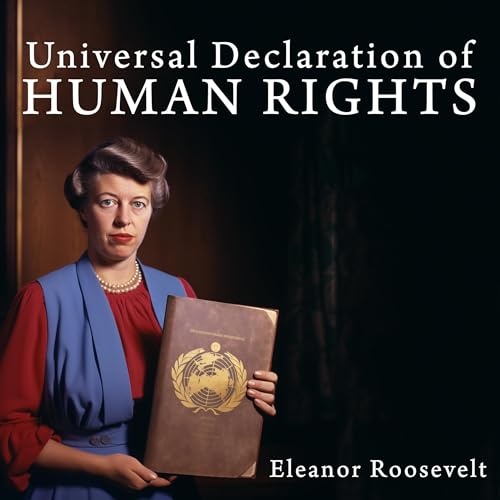
Universal Declaration of Human Rights
カートのアイテムが多すぎます
カートに追加できませんでした。
ウィッシュリストに追加できませんでした。
ほしい物リストの削除に失敗しました。
ポッドキャストのフォローに失敗しました
ポッドキャストのフォロー解除に失敗しました
Audible会員プラン 無料体験
-
ナレーター:
-
Jason MacCoy
このコンテンツについて
The Universal Declaration of Human Rights (UDHR) is a landmark document in the history of human rights, and Eleanor Roosevelt played a significant role in its development. The UDHR was adopted by the United Nations General Assembly on December 10, 1948, in Paris. It was drafted by representatives from different legal and cultural backgrounds, including Eleanor Roosevelt, who chaired the United Nations Commission on Human Rights.
Eleanor Roosevelt, the widow of President Franklin D. Roosevelt, was a key figure in the drafting process. She played an instrumental role in promoting and advocating for the declaration. Her diplomatic skills and commitment to human rights made her an influential force in the commission.
The Universal Declaration of Human Rights consists of 30 articles that outline fundamental human rights and freedoms to be universally protected. It covers a wide range of rights, including civil, political, economic, social, and cultural rights. The UDHR has served as a foundational document for the development of subsequent international human rights treaties and declarations.
Eleanor Roosevelt's contributions to the drafting and promotion of the UDHR are widely acknowledged. Her efforts in championing human rights continued beyond the adoption of the declaration, and she remains a prominent figure in the history of human rights advocacy.
©1948 Eleanor Roosevelt (P)2024 Eternal Classics

